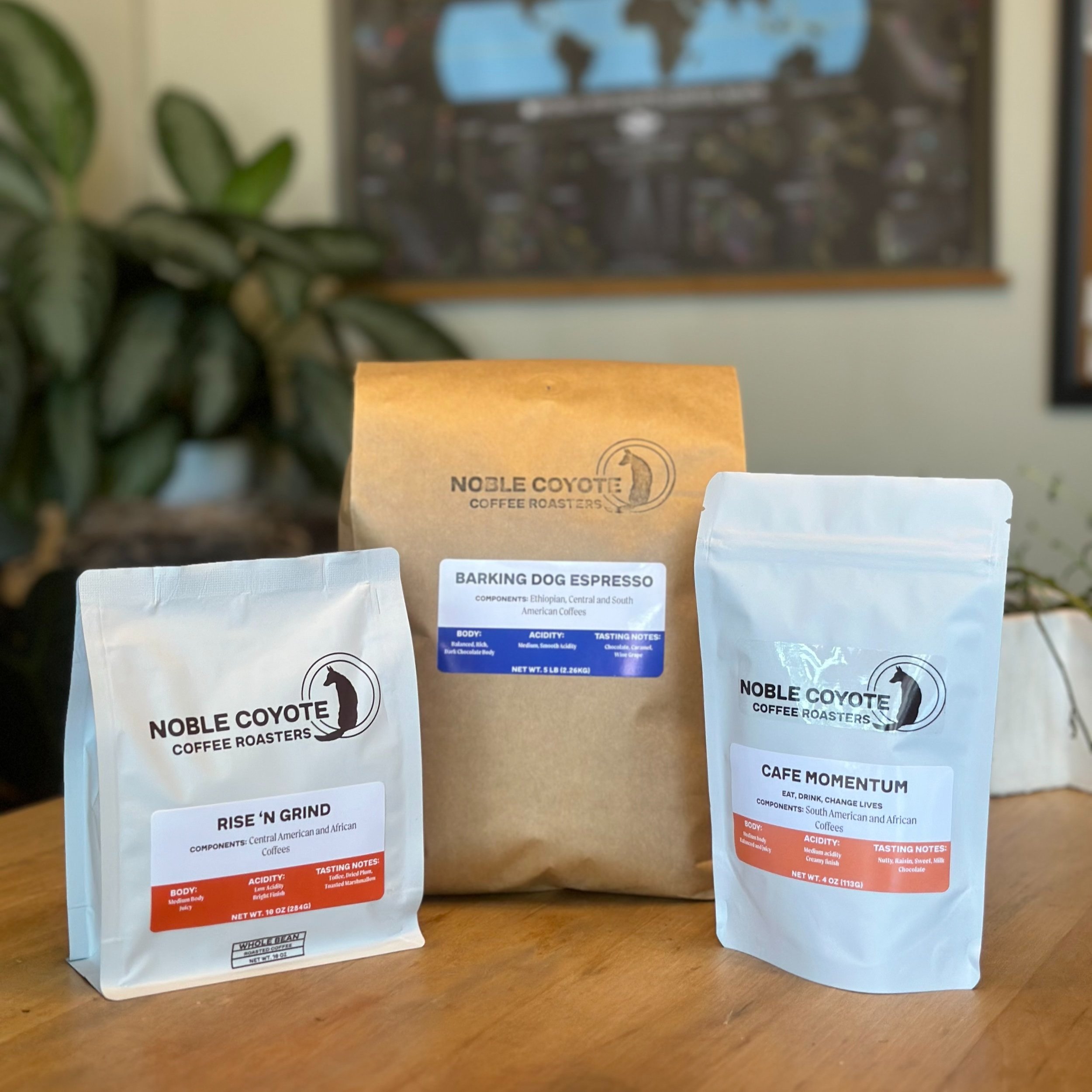Tanzania Itete - Nectarine, Black Tea, Cherry Juice


Tanzania Itete - Nectarine, Black Tea, Cherry Juice
Available in 4 oz, 10 oz and 5 lb bags.
We roast Tuesdays and Thursdays. Order cutoff time is 4:00 pm the day prior to roasting.
Country: Tanzania
Region: Mbeya
Flavor Profile: Nectarine, Black Tea, Cherry Juice
Roast Level: Medium
Process: Washed, Fermented 24-26 hours, Sun-Dried
Varietal: N39 (Bourbon), KP423 (Kent)
Itete Agricultural Marketing Cooperative Society (AMCOS) was formed in 2018. The cooperative serves 156 producers across several villages: Itete, Mlowo, Idunda, and Shinzingo. The cherries sourced from these smallholders thrive in clay loam soil, with plantings primarily consisting of Bourbon derivates: N 39 and KP 423. Before the coffee cherries undergo pulping, meticulous sorting and quality control measures are implemented. The water used in the process is drawn from the Itete river, located approximately 2 kilometers away. After pulping, the parchment undergoes grading via washing channels. The parchment ferments for 24-36 hours, followed by thorough washing and soaking for 8-12 hours, with water changed out every 3 hours during soaking. Finally, the parchment is dried on tables for 7-10 days.
N39 is a strain of a Bourbon variety developed by the Tanzania Coffee Research Institute (TACRI). It’s a tall varietal that shows tolerance to some diseases and gives a great cup quality. N39 was developed in the 1930s and intended to improve the production of coffee in that region. It carries lively acidity with a rich body and is known for its complex taste profile. The N39 has several sub-varietals, one of which is KP423, and all of them produce a clean cup with good acidity, body, flavor, and aroma.
Tanzanian coffees have grown and changed from the original barter crop to commercial and estate crops during German and British occupation years. During the transition years from British “protection” to their own independence, coffee farming cooperatives began to emerge and would eventually dominate coffee production after formal independence in 1961. Today, 95% of coffee farmers are smallholders, growing coffee on less than 5 acres of land.
Tanzania Itete is juicy to start. This coffee’s sweet, fruity notes of nectarines and cherry juice shine while you’re first sipping it. But as it cools, this brew’s smooth, tea-like body and subtle notes of milk chocolate make for a velvety finish to this fun, bright cup.
